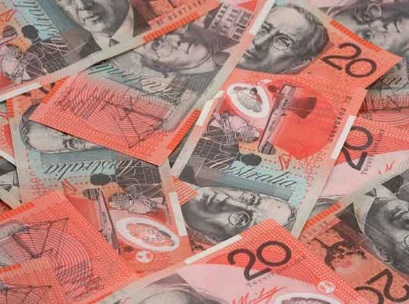 The Australian dollar has slipped Wednesday, trading at 72.03 US cents from 72.14 US cents on Tuesday as markets were pulled in opposite directions by optimism about a Chinese economic stimulus package, and pessimism about the UK House of Commons defeat of the Brexit deal.
The Australian dollar has slipped Wednesday, trading at 72.03 US cents from 72.14 US cents on Tuesday as markets were pulled in opposite directions by optimism about a Chinese economic stimulus package, and pessimism about the UK House of Commons defeat of the Brexit deal.
British MPs have defeated Prime Minister Theresa May’s Brexit divorce deal by a crushing margin, triggering political chaos that could lead to a disorderly exit from the EU or even to a reversal of the 2016 decision to leave.
Yesterday, the local currency was higher as markets wagered a white-knuckle vote on the British government’s latest Brexit plan would lessen the risk of a “no-deal” divorce, at least for the short term.
Sentiment was also aided by a fresh round of commitments from Chinese policymakers to stimulate their economy though fiscal and monetary steps.
The Aussie dollar nudged up 0.2 per cent to 72.11 US cents, having found support at 71.75 US cents overnight. Near-term resistance is layered between 72.2 US cents and 72.35 US cents.
The New Zealand dollar rose to 68.31 US cents after finding solid bids just under 68.0 US cents. Major resistance lies at the recent top of 68.43 US cents.
A hurdle looms later on Tuesday when British Prime Minister Theresa May puts her Brexit deal to lawmakers, amid wide expectations it will be voted down.
Investors seem to assume the vote will lead to an extension of the March 29 deadline for leaving the EU, thus offering more time to broker an acceptable deal or even to undertake a second referendum.
“The momentum is with those attempting to stop an economically damaging ‘no deal’,” said Gavin Friend, a senior market strategist at NAB. “This removes some of the threat to the pound.”
“But there’s still a nasty tail risk if the slim chance of a general election were realised,” he added. “We’ve previously argued this outcome would solicit the most violent reaction from UK assets. We’d expect the pound to drop 10-15 per cent reasonably quickly against the US dollar.”
Such turmoil would tend to lift the safe-haven US dollar broadly and slug both the Aussie and kiwi.
In New Zealand, a survey showed businesses became a little less gloomy over the final quarter of last year, easing fears that firms might go on an investment strike.
A net 17 per cent of those surveyed expected general business conditions to deteriorate over the coming months compared with a hefty 30 per cent in the previous quarter, the New Zealand Institute of Economic Research found.
Access exclusive analysis, locked news and reports with Inside Retail Weekly. Subscribe today and get our premium print publication delivered to your door every week.





